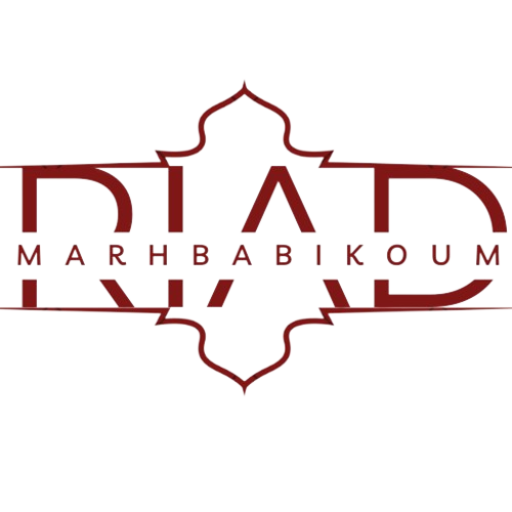Prepare your trip
You are going to come visit us
Visit to Marrakech,
Here are a few ‘guidelines,’ or rather thoughts that some might appreciate hearing before arriving.
For those who prefer to discover everything for themselves to experience the surprise, even if it might be unpleasant, there’s no obligation for you to read further.
Driving
In Morocco, there are numerous means of transportation and types of vehicles, all of which are equally respected on the road. It’s common to see a cart pulled by mules, overtaken by two bikes side by side, followed by a scooter. Cars then come along and are not the only ones on the road. Here, it’s essential not to hesitate to honk to alert (both donkeys and cyclists) that you are approaching from behind. It’s best to avoid driving on roads at night: many unlit vehicles are on the roads, and you only spot them, along with their cargo, at the very last moment.
Gratuities
It’s always customary to leave a tip: at the café, at the restaurant, for monument guides as well as tour guides, and for car attendants. Expect to leave 2 to 10 dh at the café, around 10 to 20 dh per person for the guide, and 2 to 5 dh for the parking attendant.
Beggars
You will find many of them everywhere, especially in tourist places. Don’t hesitate to give alms if you wish (it’s one of the pillars of the Muslim religion). However, please refrain from giving anything to begging children – it helps them avoid getting used to easy money.
Dress Code and Behavior Outdoors
Morocco is a Muslim country, and revealing outfits are not common. It’s advisable to dress modestly: avoid provocative necklines, short shorts, and miniskirts. Additionally, public displays of affection, especially kissing on the lips, should be avoided. If you can’t resist, try to be discreet.
Religion, the King, and Territorial Integrity
These are three topics you should not speak negatively about, as Moroccans hold them in high regard. These institutions are not to be questioned.
Scams
Like many tourist destinations, Morocco is known for some scams. Marrakech, being the tourist hub of the kingdom, sees more of these. While we won’t list all potential scams (they can be found in any guidebook), we caution you against trusting just anyone. While most Moroccans genuinely want to show you hospitality, there are some who might take advantage.
If You Visit During Ramadan
Note that everyone’s daily schedules and lifestyles change. All Muslims (and the country is predominantly Muslim) fast from sunrise to sunset. This means abstaining from food, drinks, cigarettes, and other pleasures during daylight hours. If you are not fasting, it’s advisable to be discreet about eating, drinking, or smoking in public.
Minor Health Concerns
It’s wise to have a first aid kit on hand for minor everyday injuries. Especially, be prepared for “traveler’s diarrhea” – many visitors experience digestive issues after a few days. It’s best to have remedies on hand at the first sign of symptoms. To minimize risks: don’t drink tap water, wash your hands frequently, avoid pre-cut fruits, and street-sold sorbets. Drink beverages without ice, peel all fruits, and if you’re sensitive, avoid raw vegetables at restaurants.
Money and Exchange
The dirham is the national currency, and you can’t buy it outside Morocco. You can exchange euros upon arrival, withdraw dirhams from ATMs, or even pay in euros. Many places claim to accept credit cards, but it doesn’t always work or requires an additional 5% fee (equivalent to the bank’s commission).

